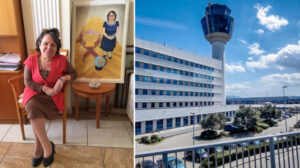A savage jihad — replete with massacres, beheadings, and sexual enslavement — has been raging in the Christian-majority nation of Mozambique since 2017.
Few in the West are aware of this, not least as the situation has been garbed in Marxist language that seeks to depict radical terrorists as “victims” and those resisting them, including the Mozambican government, as “oppressors.”
A December 2021 report details how the Islamic State came to power in this southeast African nation:
“Mozambique is a majority Christian country, with Muslims comprising around a fifth of its population.
“A religious movement, Ansar al-Sunna, first appeared in 2015 in the north of the country, formed by followers of radical Kenyan cleric Aboud Rogo Mohammed who has been linked to the 1998 US embassy bombings….
“It started building mosques and religious schools, becoming more and more popular with locals.
“But in 2017, the group starting launching attacks and became known locally as al-Shabab [the Youth], although they do not have any known connection to Somalia’s jihadist rebels of that name….
“Islamic State then confirmed that jihadis in Mozambique had joined its Central Africa Province division (ISCAP), along with militants in the Democratic Republic of Congo.
“ISIS have since claimed responsibility for many of the attacks carried out in Mozambique, including brutal beheadings and massacres, often posting photos of the victims online….
“The militants still refer to themselves as al-Shabab but they are now strongly considered to be an arm of ISIS, which was confirmed by US officials in December.”
Iron Maiden: They played the legendary track “Alexander the Great” for the first time live (video)
The terrorists, who go by many names, but are perhaps best known as the “Islamic State in Mozambique” (ISM), are especially active in and have gained effective control of the resource-rich Cabo Delgado province in late 2017. It has since been termed “the Land of Fear” due to the “brutal violence meted out against both Christians and moderate Muslims”.
Read more: Gatestone Institute
Ask me anything
Explore related questions





